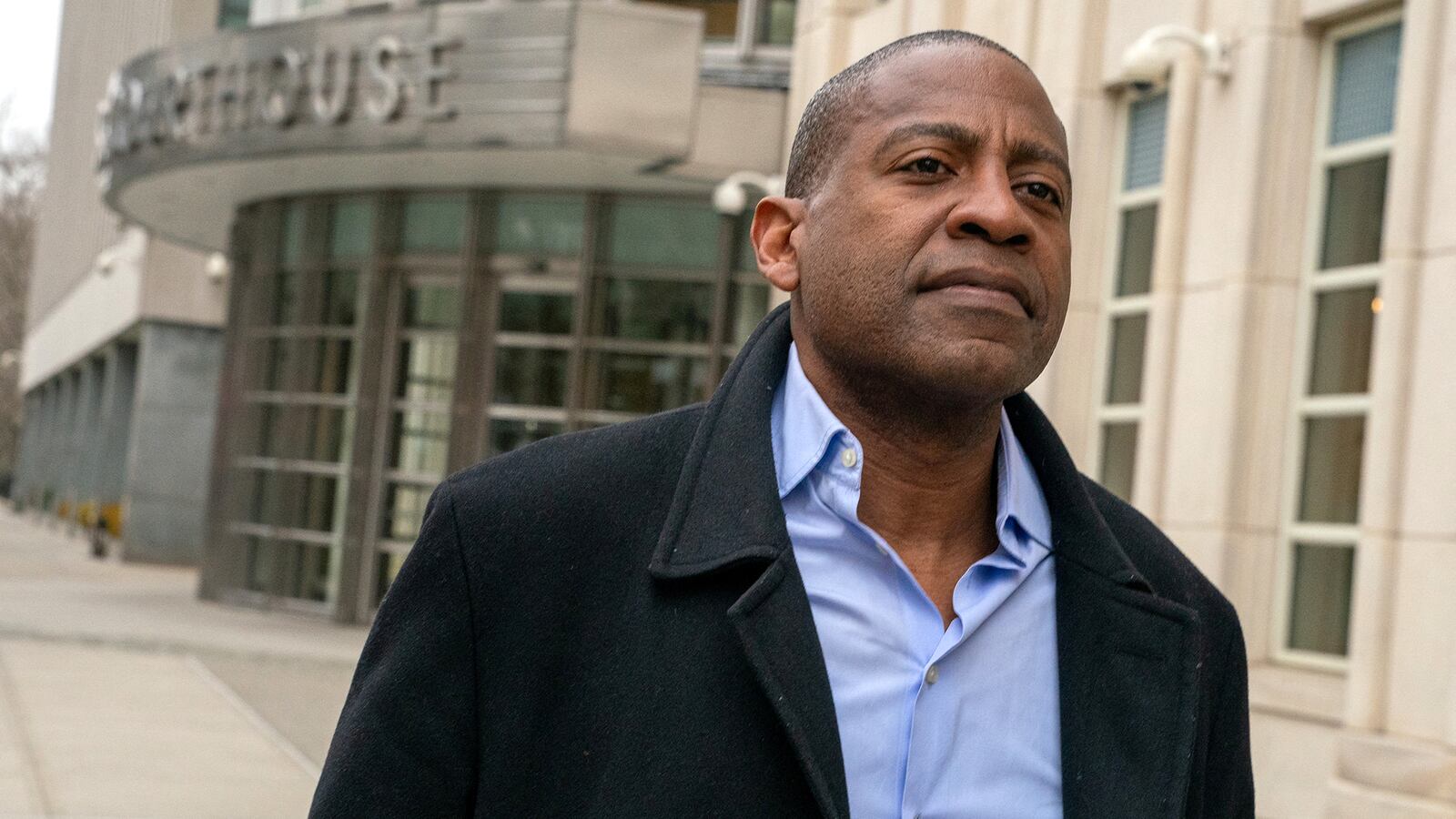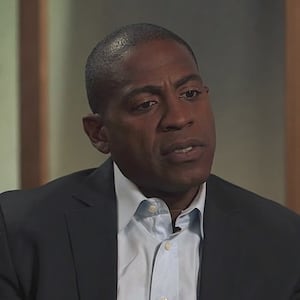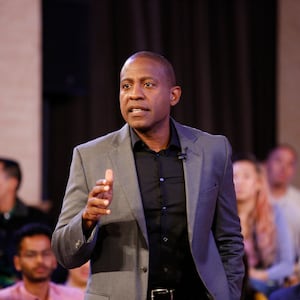Had he still been a daytime anchor on MSNBC, Carlos Watson would no doubt have spent Monday marshaling reports about the Trump hush-money trial in downtown Manhattan.
Instead, Watson was on the other side of the East River, sitting as a defendant in Brooklyn Federal Court, awaiting the start of jury selection in a multi-million dollar fraud case that could leave him facing 37 years in prison.
A 54-year-old Harvard and Stanford educated superachiever, Watson had gone from anchoring a morning news show in 2009 to co-founding the digital startup Ozy Media in 2013, when it seemed there a fabulous fortune to be made online with news articles, newsletters and podcasts. He also produced television, including The Carlos Watson Show, on which he interviewed notables ranging from Bill Gates to Scarlett Johansson to NASCAR’S Danica Patrick.
But generating a little buzz online did not translate into significant profits, a problem Watson is alleged to have kept hidden as he sought a succession of investors. His attorney, Ronald Sullivan Jr., has contended in court papers that Watson was only doing what other struggling online ventures such as Vice and BuzzFeed did.
“The fact that Carlos Watson and his company have been indicted is not the only difference between them and their peer founders and companies,” Sullivan said in court papers. “The others are white and white-owned. Carlos Watson is a Black man and Ozy Media was majority-owned by people of color.”
In April, Sullivan Jr. failed in an effort to have the case dismissed on the grounds of racial bias.
Whether or not other digital outfits engaged in some audience padding, Watson is alleged to have gone so far as to have forged financial documents and arranged for Ozy’s co-founder, Samir Rao, to pose as a YouTube executive.
Rather than the grubby gloom of the state courtroom where Trump is on trial, the federal court in Brooklyn is well lit, with polished wood, in the better funded federal way. He looked like a continuing success story, seemingly relaxed in a well fitted dark suit, white shirt and tie. He made small talk about TV detective shows with others at the defense table.
“You watch Columbo?” Watson asked. “He would say, ‘One more thing…’”
For Watson, the big plot twist had come when YouTube learned that somebody had impersonated its head of unscripted programming when phoning into a meeting with Ozy and Goldman Sachs, which was poised to invest $40 million in Watson’s company. The New York Times was the first to report on the meeting, revealing Goldman investigated and determined that the bogus executive was in fact Rao.
In an email to The Times’ Ben Smith and to Goldman Sachs, Watson said that Rao had suffered a mental breakdown. The feds decided that Rao had simply broken the law. He was arrested and pleaded guilty. The feds’ next step was to arrest Watson.
“The defendant Carlos Watson and Rao were in a room together,” the indictment says of what it describes as a fraudulent call. “Rao used a voice alteration app he had downloaded to his cellular telephone to mask his voice on the call, and impersonated [the YouTube executive].”
As recounted in the indictment, the bogus executive told Goldman Sachs that after meeting with Watson, YouTube had supposedly decided to sign Ozy up for a multiple episode pilot and expected future seasons of The Carlos Watson Show. The poser added that the show had done exceptionally well in terms of viewership and that it was supposedly being considered to become YouTube’s premium talk show.
“These statements were false,” the indictment notes.
Watson was further alleged to have conspired with Rao to forge the signature of a cable company executive on a bogus contract for numerous episodes. The indictment says the spurious document was then sent to a bank, with a copy to Ozy’s chief financial officer, who immediately quit.
“This is fraud,” the indictment quotes the CFO telling Watson in an email. “This is fraud. This is forging someone’s signature with the intent of getting an advance from a publicly traded bank.”
The email continued, “To be crystal clear, what you see as a measured risk—I see as a felony.”
Watson will now be going on trial on charges of securities fraud, mail fraud and aggravated identity theft. In front of Magistrate Marcia Henry on Monday, the limit of Ozy’s reach appeared to be clear when not one of the prospective jurors indicated that they had heard of Watson. Henry told them that the trial will not actually start until May 28 and there will be no court during six week days in June and July. She said the trial is expected to run until the end of July.
The prospect of spending that much of the summer in a courtroom may have added to the remarkable number of prospective jurors who had reason they could not be impartial in a fraud case. A total 25 of the first 40 were excused as of the lunch break.
Eventually, 12 jurors will be seated to decide the fate of an overachiever who sought riches in a place where they were not to be had.








